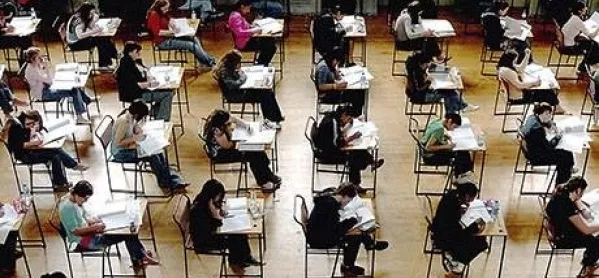As thousands of pupils celebrate their GCSE results today, many adopted children will be facing up to grades that are only half as good as their classmates.
Just a third of adopted children passed their English and maths exams last year, compared with 59 per cent of other pupils, according to Department for Education figures.
But, far worse, adopted children are 20 times more likely to be permanently excluded from school and are much more likely to leave full-time education with no qualifications due to early life trauma, according to charity Adoption UK.
Neglect and abuse in early childhood can have a significant effect on the development, behaviour and relationships of adopted children, even when placed in a stable home, according to the charity.
'Just coming to school is an achievement'
Adoption UK chief executive Sue Armstrong Brown said: “Those adopted children who get good results today deserve special congratulations. For a significant number of adopted children, just coming to school is an achievement, let alone passing exams.
“These children need even greater recognition, as well as a school environment that fosters social and emotional wellbeing as a precursor to learning, rather than as an alternative.”
The charity, which kicked off its Equal Chance campaign in June, is calling on the government to radically upgrade school support for children who are adopted or in care homes, as well as other vulnerable youngsters.
Adoption UK wants all teachers and teaching assistants to be put through regular training on how best to coach traumatised children, in a bid to end the current “postcode lottery” of schools that have a number of trained specialists on site.
A recent survey by the charity, of almost 4,000 adoptive parents and children, found that three-quarters of youngsters do not feel that their teachers understand how to support them, while 79 per cent feel routinely “confused and worried at school”.
The charity highlighted the case of Adelaide (her name has been changed), who dropped out of mainstream education, aged 14, after crumbling under the pressure of the school environment.
Her adoptive mother, Stella (name also changed), described Adelaide as a “bright girl but with a hidden disability”. She received two GCSEs after sitting her exams at a pupil referral unit (PRU) in 2017.
This year, Adelaide took two further GCSEs at the PRU, but Stella is still concerned that she has “little direction, organisation or esteem”.
In 2014, the government – concerned about the educational attainment of vulnerable children – set up virtual school heads in almost every local authority. More than 150 of these heads are currently charged with supporting schools and students in a bid to boost grades.




